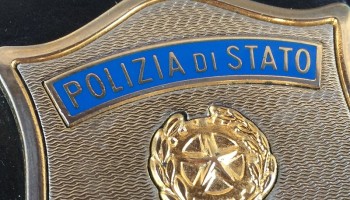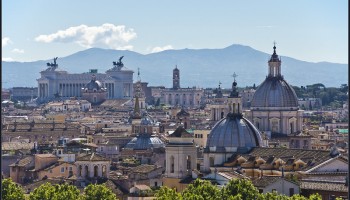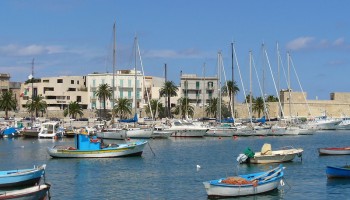Among the 15 defendants are 81-year-old Anthony Gifoli, known by the alias “Tony Meatballs,” as well as Underboss Steven Mazzone and Caporegime Domenic Grande.
La Cosa Nostra, which means “this thing of ours” in Sicilian, is the American branch of the Sicilian Mafia. It came to U.S. shores in the late 19th and early 20th centuries and quickly spread around the country.
“The Philadelphia LCN is one of a number of LCN organized crime families based in various cities throughout the United States,” said the DOJ. “The purpose of the LCN in Philadelphia and elsewhere is to make money through the commission of various crimes, including illegal gambling, loansharking, drug trafficking, and extortion.”
However, what sets La Cosa Nostra apart from other gangs is an adherence to certain strict traditions and hierarchies.
“Like other LCN families, the Philadelphia LCN is operated through a defined hierarchical structure, including a Boss, an Underboss (Steven Mazzone), and Captains (Grande), who oversee ‘crews’ consisting of ‘soldiers’ and ‘associates,’” the statement said.
“Soldiers are members of the family who have been formally initiated through a ritual called a ‘making ceremony,’ during which they swear allegiance to LCN above all else, take a vow of secrecy about the organization (the Code of Silence or ‘Omerta’), and agree to commit violence on behalf of the LCN if necessary.”
La Cosa Nostra soldiers must be of complete Italian ancestry, according to the DOJ statement.
The Philadelphia branch ran a variety of criminal rackets from bookmaking to loansharking in Pennsylvania and Southern New Jersey, being particularly active in the area of nearby Atlantic City.
“During a period beginning in August 2015, ten of the defendants allegedly conspired to conduct and participate in the affairs of the Philadelphia LCN through both a pattern of racketeering activity and through the collection of unlawful debts,” the DOJ said.
“The remaining five defendants are charged with allegedly committing a variety of other offenses, including conducting an illegal gambling business, conspiracy to make extortionate extensions of credit, and conspiracy to distribute controlled substances, in partnership with other members and associates of the Philadelphia LCN,” it added.
Like much of the rest of La Cosa Nostra in the United States, including the famous five families of New York, the Philadelphia mafia was recognized as one of the mafia’s major families at the 1951 Havana conference, which established the so-called “Commission” that oversaw the Italian-American mafia, and put an end to the internal warring between families that had defined the groups in the first half of the 20th century.
The Philadelphia Mafia has recently been in the news due to a false accusation, that the group had worked to falsify votes in Pennsylvania in order to secure a victory for President-Elect Joe Biden, in the November 3, U.S. election. However, though Donald Trump still contests Biden victory in the state, the claim of mafia involvement has even been rejected by president Trump's personal lawyer Rudy Giuliani who called it “far-fetched.”
Before he was mayor of New York City, Giuliani made a name for himself as an attorney working on the 1965 mafia Commission trial, which prosecuted the heads of New York’s five families and marked the beginning of the La Cosa Nostra’s declining power in America.
However, while the Sicilian-American mafia has been in decline in recent decades, back in Italy the Cosa Nostra is still one of the most powerful forces in the country, next to the ‘Ndrangheta and the Camora. Organized crime is believed to make up more than 7% of the country's GDP.
The same day as the superseding indictment came out, 80 members of the Sicilian Cosa Nostra clan were arrested by Italian authorities during raids on 12 illegal drug markets run by the group’s Nizza clan in the Sicilian city of Catania. Another 101 individuals were put under investigation, according to the Italian news agency ANSA.






